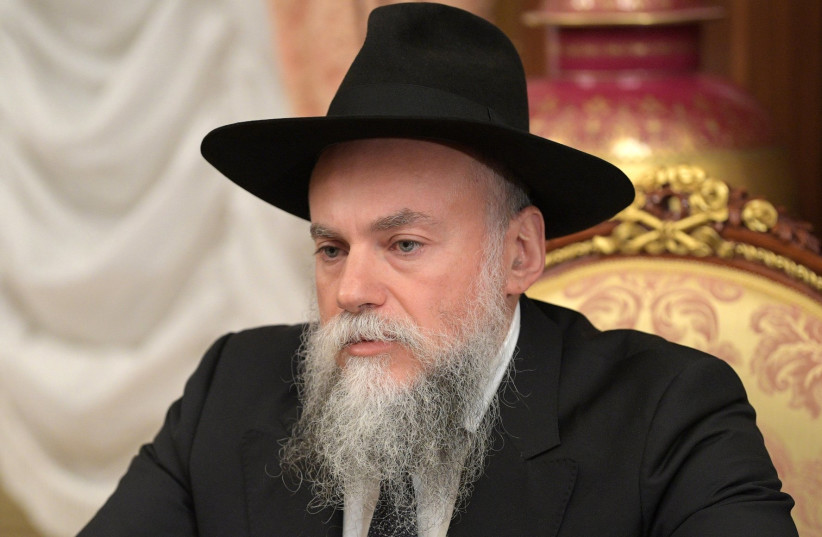A prominent rabbi in Russia was quoted this week as supporting Russia’s supposed “Denazification” of Ukraine.
“In recent years there has been a systematic glorification of Nazi criminals, torchlight marches and the like,” said Rabbi Alexander Boroda, chairman of the Board of the Federation of Jewish Communities of Russia.
He said he was bewildered “that neo-Nazism was actively asserting itself in a country like Ukraine.”
Russian President Vladimir Putin has been comparing the West to pre-World War II Nazi Germany, as well.
Last week, he claimed that the sanctions placed on Russia were comparable to the teaming up against Russia that Nazi Germany carried out prior to the war.

At first glance, both of these statements are simply incorrect. There is no Nazism in the actions Ukraine has taken to defend itself from the onslaught of Russian attacks, ongoing even as rumors continue to spread of a possible upcoming ceasefire.
In fact, unless a nation is committing genocide – unless it is wiping out in death camps an entire people by the millions on the basis of a racist and hateful ideology – it is hard to see where is the connection to Nazism.
Comparing the current crisis to the Holocaust is occurring on both sides.
On Sunday night, Ukrainian President Volodymyr Zelensky compared Russia’s actions to the Holocaust saying that Moscow is using terms like “the Final Solution” in relation to Kiev.
Setting aside whether the current war is in any way comparable to World War II, there is now the issue of whether such statements coming out of totalitarian states like Russia can even be authentically condemned.
In May 2020, Chief Rabbi of Tehran Yehuda Gerami said on Iranian state television that Zionists “do not represent Judaism and do not represent the Jewish people. We strongly condemn your aggression, and emphasize to the whole world: there is a big difference between Judaism and Zionism.”
These religious leaders are currently living in countries being ruled by oppressive and oftentimes violent regimes.
Just look at Russia: peaceful protesters who dare oppose Putin are being arrested left and right. Freedom of speech is not a given right in these states.
So how can we, citizens of democratic countries, possibly expect those with whom we find some semblance of unity to express ideologies that correspond with Western beliefs?
How can the modern world expect the citizens of such a state to dare contradict their leaders and potentially risk their lives in the process?
This, of course, is in a scenario in which the people within Russia – and Iran, for that matter – are even exposed to the truth.
The most likely status quo is one of propaganda, of televised lies and false news.
There have been numerous attempts within faith groups to reach out to one’s counterpart and ask for their support.
One of Ukraine’s chief rabbis, Rabbi Moshe Reuven Asman, for example, sent a message to the Jews of Russia, saying, “I turn to you – dear citizens of Russia, dear Jews, dear Russians! All those who are not indifferent, remember: all those who are indifferent, all those who agree in silence or not in silence, are partners in crime, in a war crime!”
This, of course, is not contained within the Jewish faith alone.
Patriarch Kirill of the Russian Orthodox Church, known to be a close ally of Putin, expressed his support for Russia’s actions in Ukraine. He later held a call with Pope Francis to discuss the war from a “humanitarian” angle.
While it is important to bring to light that these statements are incorrect, it is impossible to ascertain beyond a shadow of a doubt if these words come from fortified knowledge and free rhetoric. In all likelihood, that is not at all the case.
The West would do well to exercise empathy toward those being harmed greatly by oppressive regimes.
The understanding expected from these religious leaders in Russia and Iran must in turn be extended to them as they stand in particularly vulnerable positions.
